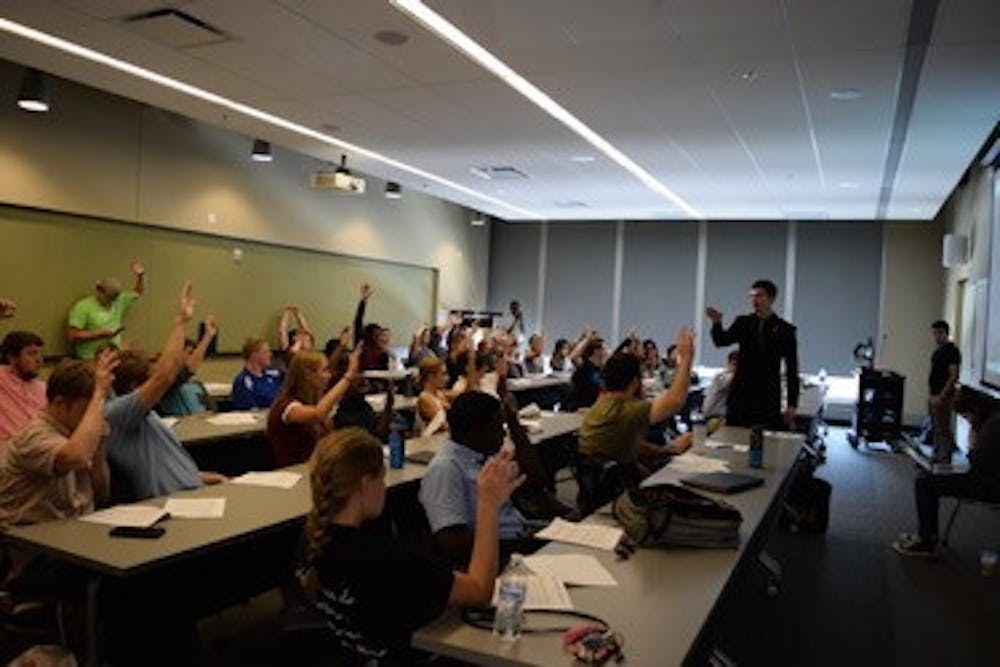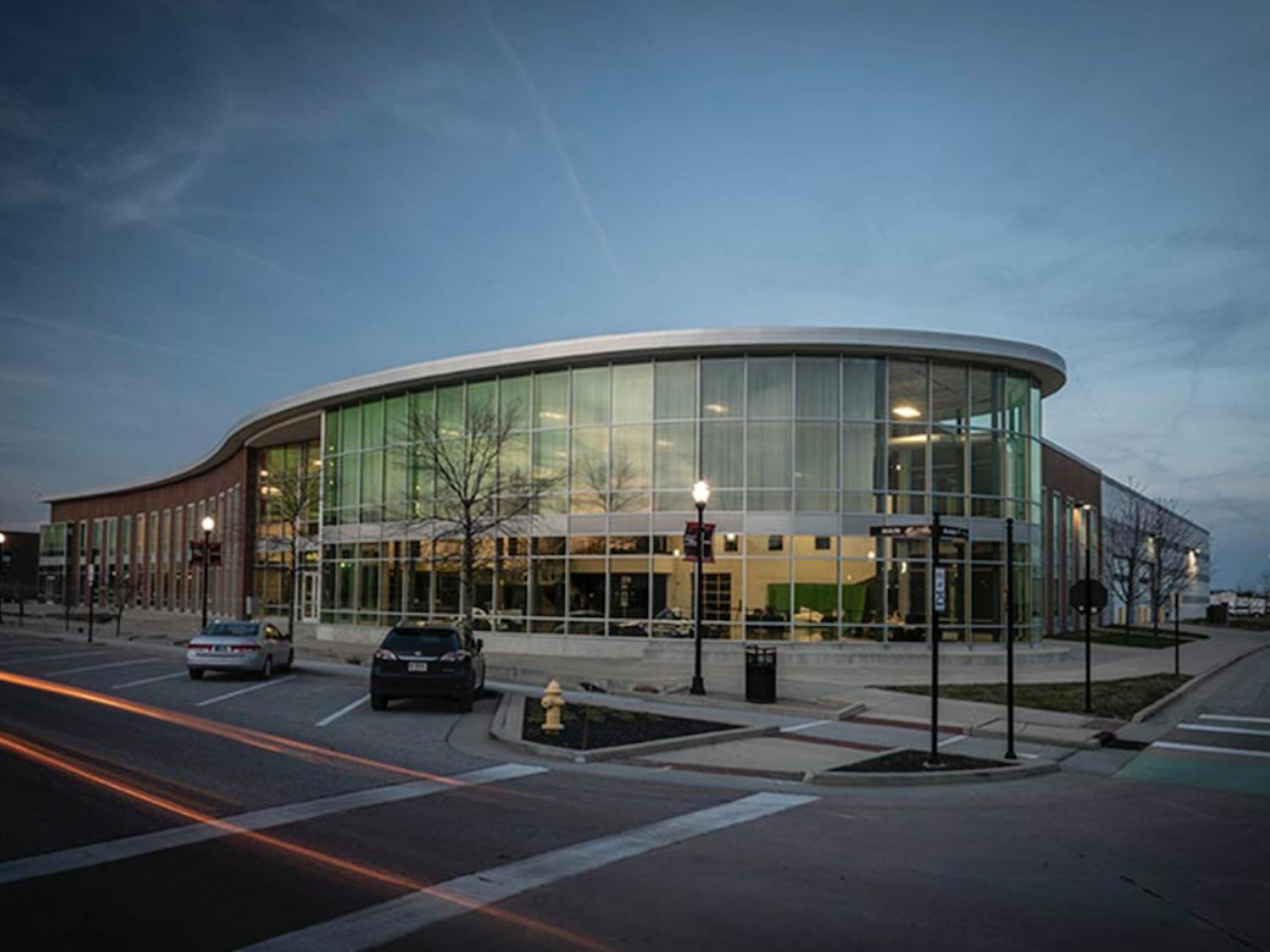Undergraduate Student Government’s new leadership seeks to revitalize legislative branch after remodeling the USG constitution.
By Paris Garnier
IUPUI’s Undergraduate Student Government, like all other governments, goes through its ups and downs. After the divisive post-voting trials of the spring semester, USG’s new executive team has embraced the new semester with renewed ambition and hope for the future.
Last Friday was the first senate meeting of the 2016 fall semester. Although it strayed from schedule, there was never a dull moment. Upwards of 60 senators attended; USG received about 65 senatorial affidavits beforehand. Seating was tight enough that president Mosopefoluwa Ladapo and vice president Michael Thompson stood.
The first piece of business was filling the position of president pro-tempore, a position that acts as a leader of the senate. Eddy Vaughn was nominated last semester, but due to low attendance among senators, could not be elected until now. He was accepted and the meeting shifted its focus on to his summer project: a completely revised constitution.
Although the constitution shrank from 22 pages to six, almost nothing was actually changed. Inaccuracies and wordiness, or as USG secretary Kelly Barbret put it, “extremely dense, unnecessary shenanigans,” were condensed.
“Nothing in the essence of what’s going on is changed; it’s making it easier to understand for people who are reading it,” Vaughn explained.
The most significant change to the constitution was the addition of a parliamentarian, which will a

ct as an assistant to the president pro-tempore once appointed. This position was added to ensure that even in the president pro-tempore’s absence, senate meetings will be conducted by members of the senate. The constitution was passed unanimously.
Once the constitution was ratified, the room broke up into five groups to form committees and elect their chairs. Oversight, appropriations, outreach, internal affairs, and external affairs.
Finally, the time came to discuss and vote on the budget. The senators were inquisitive: everything from campus center late fees to office supplies expenditures were discussed. Most notable was that the executive board stipends had been altered. President Ladapo chose to reduce his stipend and raise the rest of the executive board’s stipends to be more equal.
Throughout the meeting, Ladapo and Thompson alike emphasized the importance of the senate and its relationship to the executive branch. They explained that committees will work on legislation, rather than the executive board handing out orders.
“We do what you say,” Thompson said. “We are the hands to your will.”
According to Ladapo, the USG executive board has one goal, to “Make USG relevant again.”
Low senatorial attendance has left USG with a shadow of a legislative branch until now. Transparency, efficacy, and representation are major concerns of the current executive board. They seek to return power to the

Vice president Michael Thompson closes the meeting with an overview of the senatorial experience.
senate, stating that a stunted senate feels more like an autocracy than true student representation.
“I mean, it’s also very powerful when you walk into a meeting with people and you say ‘this is being ratified by senate, who represent 65 different organizations on this campus’ versus ‘this was written by me, Sope,’” Ladapo explained.
They plan to revitalize USG by filling it with as many senators as they can. If all goes well and they have a representative from every student council from every school, their numbers could exceed 80. Should that come to pass, a bicameral legislature may follow.
“We can only do so much to represent students, but senate is the best way to get that representation,” Ladapo said.
“And the relevance comes again from getting senate to act like a senate,” Thompson added. “To be a senate again beyond just having representatives there to be the crucible by which ideas are tested on campus.”
Change will be slow going, as it is a “building year” and the new executive board had a rocky start, but they have high hopes.
“By the end of five years, I know for a fact that if we have … people with the same passion for representation then it can only go up from here,” Ladapo said.
A Fresh Start for IUPUI's Student Government

Heads up! This article was imported from a previous version of The Campus Citizen. If you notice any issues, please let us know.
Vice president Michael Thompson counts the votes to approve the constitution. The vote was unanimous.




